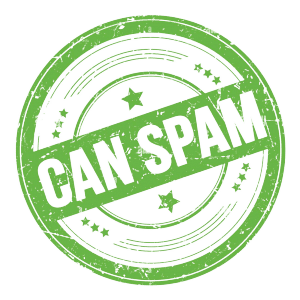The 7 Most Common Misconceptions about Email Marketing
Myths and misconceptions are widespread around the world, and unfortunately, they also exist in email marketing. Though we know they’re fake, they can still affect perceptions and limit marketing effectiveness. However, email communication remains one of the most effective business methods today.
It connects various entities across countries, regardless of geographical limitations. Today, every industry is embracing email advertising due to its cost-efficiency and measurable results. However, several myths and misconceptions are preventing companies from leveraging their full potential. This article will debunk the top 7 email marketing myths you need to know about.
List of myths covered in this blog:
- Email marketing is dead
- Small entities don’t subscribe
- Marketing costs are high
- ‘Free’ in emails triggers spam
- Benefiting only from sales
- Must have a large email list
- Email marketing is complicated
So, let us dive into the insight pool of email marketing myths vs. reality by examining common misconceptions and contrasting them with factual evidence.
1. Email marketing is dead
Foremost, this is the biggest myth in the digital marketing landscape. Email marketing is a constantly evolving strategy in the business-to-business sector. Despite various predictions of its demise, email marketing remains a powerful and effective tool for engaging with audiences, driving conversions, and nurturing relationships.
Every day, 4 billion users rely on email marketing to collaborate and connect with businesses. If you face a downturn in your campaigns, don’t dismiss email outreach as ineffective. Instead, evaluate your approach and assess the quality of your email list.
Moreover, it is important to know your business goals and eliminate common email marketing misconceptions. Because, in today’s world, this online advertising strategy benefits your business by reaching out to the right prospects and generating potential leads from a vast pool of clientele.
2. Small entities don’t subscribe
This is another popular myth in this queue that email or digital mail marketing is not suitable for small businesses. But it can be a valuable tool for businesses of all sizes. Many small entities find email engagement more effective than traditional marketing methods. They often achieve better results from email campaigns than their larger counterparts.
There are a few reasons for this. First, small businesses usually have closer relationships with their customers, allowing them to create more personal and targeted email campaigns. Second, small businesses can quickly adapt their email advertising strategies to changing customer behaviors.
According to Forbes, 64% of small businesses utilize email marketing. Many excellent online marketing platforms are affordable or even free for small businesses. If you’re a small business owner and are not utilizing this tool, you’re missing out on a valuable opportunity to grow your business.
3. Marketing costs are high
Email marketing is an expensive investment in business outreach. Definitely not. In fact, it is very cost-effective, especially when compared to other marketing methods. Email campaigns are an effective way to reach out to potential customers and promote your business. However, the cost of advertising depends on the size of your mailing list and the frequency of your mailings.
Digital marketing campaigns can fit any budget. To reduce costs, consider using bulk email services, which offer discounts for sending large numbers of emails. You can also lower expenses by sending fewer emails or spacing them out more. Additionally, you might use more affordable marketing methods, like social media or print ads, to complement your email efforts.
4. ‘Free’ in emails triggers spam
This is one of the most common email marketing myths. The fact is, the ‘free’ word is not spammy. It can effectively reach your target audience with attractive words like ‘free’, ‘affordable’, ‘lowest price’, and more. However, the effectiveness of your messages depends on the language and content, not just the inclusion of widely-used words.
Nowadays, spam filters are developed to be capable of separating spam mail and promotional emails by analyzing various factors such as content quality, sender reputation, email engagement metrics, and the use of trigger words. So, focus on the personalized content to be delivered to your targeted audience.
5. Benefiting only from sales
Another myth about electronic mail marketing is that it is only for selling purposes. The fact is that it can be used for a variety of purposes, including building relationships, providing valuable content, enhancing brand value, and much more.
Some businesses think email engagement is just about selling products, but that’s a mistake. Email communication should focus on more than just sales, like sharing industry insights, offering valuable tips, and more. Remember, customers are people with needs and problems, and they want businesses that can help solve them.
If all you do is sell, sell, sell in your emails, you’re going to turn customers off. But if you focus on building awareness and helping customers, you’ll be able to grow your business sustainably. Consequently, you can increase your brand recognition in the market.
6. Must have a large email list
Effective campaigns don’t need large email lists to succeed. With a small list of contacts, email advertising has worked well for many small businesses. One of the key benefits of digital mail marketing is that it is a very targeted form of communication.
You can segment your email list to target specific groups of people with particular interests. This means you can send personalized email marketing messages to your customers according to their preferences. This improves your open and click-through rates by around 29% and 41%, respectively.
As we already know, email advertising is a cost-effective form of communication. You can reach your potential customers with minimal expenses and even set up an effective marketing campaign at no cost by approaching a prominent email database provider like OriginLists.
7. Email marketing is complicated
Ultimately, a common myth about electronic mail marketing is that it is a complicated process. However, email communication can be quite straightforward. With the right tools and resources, it can be easily implemented by businesses of all sizes.
Several online platforms offer easy-to-use templates and email marketing tools. These platforms make creating and sending newsletters, announcements, and other marketing messages easy. In addition, they provide tracking and reporting features that give businesses valuable insights into their digital marketing campaigns.
Despite the myth that email communication is complicated, it is a very effective marketing tool. It can help businesses reach a broad audience, build customer relationships, and drive sales when used correctly.
Conclusion
So, here are the top 7 email marketing myths you need to know about. Debunking these email marketing myths reveals the true potential and effectiveness of well-executed email campaigns. However, all these fallacies have evolved within the digital market due to a lack of knowledge, technological changes, competition, and complexity. Electronic mail marketing is still an effective way to reach your potential clients. Using it correctly, you can get a lot of mileage towards your targets.
Apart from these myths and misconceptions, it is better to focus on email marketing trends with proper proof and data-driven insights. Moreover, to build or buy an authentic industry-specific email list, choose a prominent platform like OriginLists for your effective marketing campaigns. Don’t delay in identifying your business requirements if expert guidance and support are needed.


